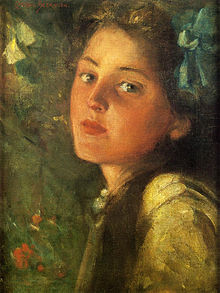- Mono no aware
-
Mono no aware (物の哀れ?), literally "the pathos of things", also translated as "an empathy toward things", or "a sensitivity to ephemera", is a Japanese term used to describe the awareness of impermanence (無常 mujō), or the transience of things, and a gentle sadness (or wistfulness) at their passing.
Contents
Origins
The term was coined in the 18th century by the Edo period Japanese cultural scholar Motoori Norinaga, and was originally a concept used in his literary criticism of The Tale of Genji, and later applied to other seminal Japanese works including the Man'yōshū. It became central to his philosophy of literature, and eventually to Japanese cultural tradition.
Etymology
The word is derived from the Japanese word mono, which means "things", and aware, which was a Heian period expression of measured surprise (similar to "ah" or "oh"), translating roughly as "pathos", "poignancy", "deep feeling", or "sensitivity". Thus, mono no aware has frequently been translated as "the 'ahh-ness' of things", life, and love. Awareness of the transience of all things heightens appreciation of their beauty, and evokes a gentle sadness at their passing. In his criticism of The Tale of Genji Motoori noted that mono no aware is the crucial emotion that moves readers. Its scope was not limited to Japanese literature, and became associated with Japanese cultural tradition (see also sakura).[1]
In contemporary culture
Notable manga artists who use mono no aware–style storytelling include Hitoshi Ashinano, Kozue Amano, and Kaoru Mori. In anime, both Isao Takahata, with his Only Yesterday, and Sunao Katabuchi, with Mai Mai Miracle, emphasize the passing of time in gentle notes, both films presenting the main storyline against a parallel story from the past. The Japanese director Yasujiro Ozu was well-known for creating a sense of mono no aware, frequently climaxing with a character saying a very understated ii tenki desu ne (いい天気ですね?, "Fine weather, isn't it?"), after a familial and societal paradigm shift, such as a daughter being married off, against the backdrop of a swiftly changing Japan.
Ivan Morris in his book, The World of the Shining Prince about courtly life in ancient Japan, compared it to Virgil's term lacrimae rerum, Latin for "tears of things".[2]
The phrase is the basis for the song 'The Sadness of Things' by Momus.
See also
References
External links
- Definition from the Japan Glossary by Richard Hooker of Washington State University
- Lecture notes from a Japanese culture class at Ohio State University
Categories:- Japanese literary terms
- Japanese philosophy
Wikimedia Foundation. 2010.


